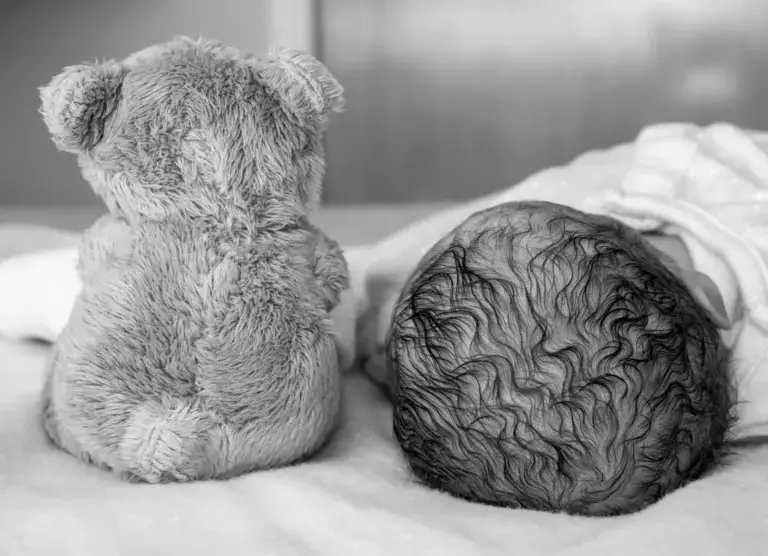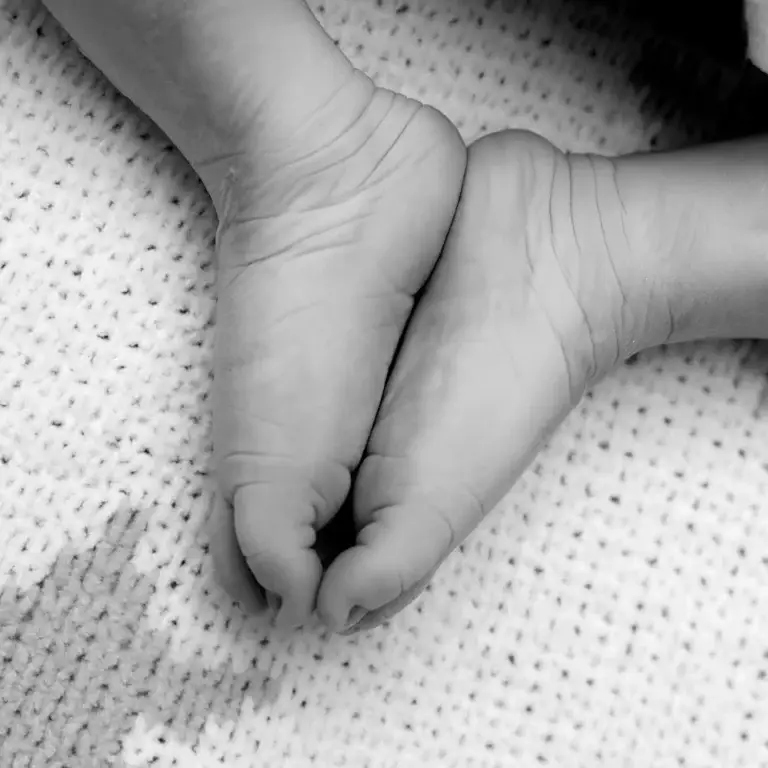Louise hadn’t even packed her hospital bag when her waters broke at just 30 weeks. The pregnancy had gone smoothly so far, with no real cause for concern, and she had assumed there would still be plenty of time to prepare for her baby’s arrival. “I kept thinking, ‘I’ll do it next week,’” Louise said, her voice trembling. “I thought I had weeks left to buy her cot, wash the baby clothes, and get everything ready. But suddenly, it was happening, and I wasn’t ready at all.”
Her daughter, Freya, arrived into the world weighing just over two pounds. She was incredibly fragile, but she was alive, and that was enough for Louise. “When they placed her on my chest for just a moment, I felt this rush of love like I’d never known,” she said. “She was so tiny, but she was absolutely perfect. I looked at her and thought, ‘You’re here. You’re mine.’”
Freya was quickly taken to the neonatal intensive care unit, where she was placed in an incubator surrounded by machines that monitored her every breath. “The doctors told me she was strong, but they said the next few days would be critical,” Louise said. “I remember staring at her through the glass, feeling completely helpless. All I wanted was to hold her again, to make her better, but all I could do was sit there and watch.”
For the next five days, Louise stayed at Freya’s side, barely sleeping or eating. She would sit for hours, her hand resting on the glass of the incubator or reaching in to stroke Freya’s tiny hand. “She had the smallest fingers, but they gripped onto mine with this incredible strength,” Louise said, her voice breaking. “It felt like she was telling me, ‘I’m here, Mum. I’m fighting.’ And I believed she would make it.”
One of the nurses suggested taking a photograph of Freya, something Louise hadn’t even thought about. “At first, I was hesitant,” she admitted. “I didn’t want to think about needing a memory of her. I was so focused on her getting better that taking a photo felt like giving up hope. But now, that photo is everything. It’s the only picture I have of her where she’s awake, looking at me with her big, curious eyes. It’s a piece of her I can still hold onto.”
On the sixth day, everything changed. Freya’s condition deteriorated rapidly, and the doctors told Louise that her daughter’s underdeveloped lungs were failing. There was nothing more they could do. “I felt like my heart was being ripped out of my chest,” Louise said. “I begged them to try something else, anything, but they just kept saying, ‘We’re so sorry.’ I couldn’t believe it. I kept thinking, ‘This can’t be it. She’s supposed to come home with me.’”
For the first time since Freya was born, Louise was able to hold her properly, cradling her against her chest as the machines were turned off. “She felt so warm, so real,” Louise said. “I kept telling her I loved her, that she was the best thing that had ever happened to me. I didn’t want to let her go. I didn’t know how to say goodbye.”
As Freya took her final breaths, Louise held her tightly, her tears soaking the blanket wrapped around her daughter. “I whispered to her about all the things I wished we could have done together,” she said. “I told her about the life I’d dreamed for her and how proud I was of her for fighting so hard. It was the hardest moment of my life, but I wouldn’t trade those final moments with her for anything.”
In the weeks that followed, Louise was consumed by grief. “Every morning, I’d wake up and for a split second, I’d forget she was gone,” she said. “And then I’d remember, and it felt like losing her all over again. I didn’t know how to keep going.”
Louise was plagued by guilt, replaying the events of her pregnancy over and over in her mind. “I kept asking myself, ‘What if I’d done something differently?’” she said. “I wondered if it was my fault, if I could have prevented it somehow. It felt like I’d failed her.”
The isolation of her grief only deepened her pain. “People around me didn’t know what to say,” Louise said. “Some avoided me altogether, and others tried to say things to make me feel better, but they only made it worse. They’d say, ‘At least she’s in a better place,’ or ‘You can try again.’ But I didn’t want another baby. I wanted Freya. She wasn’t replaceable.”
Louise’s friends and family tried to help, but their support often felt hollow. “Everyone seemed to focus on what they thought I should do to move on, but no one really listened to how I was feeling,” she said. “I felt so alone, like I was carrying this massive weight, and no one else could see it.”
Eventually, Louise reached out to a support group for bereaved parents. At first, she was unsure if it would help, but hearing the stories of others who had experienced similar losses brought her a sense of connection. “It was the first time I felt like someone truly understood,” she said. “I could say her name, talk about her, cry, and no one judged me. They just listened. It made me feel less alone.”
The photograph of Freya became Louise’s most treasured possession. “It’s not just a picture—it’s her,” she said, holding it close to her chest. “When I look at it, I can still feel her presence. It reminds me that she was here, even if it was only for a short time. That photo is proof of her life, proof that I was her mum.”
To honour Freya’s memory, Louise created a small space in her home with the photograph, a tiny knitted hat the hospital gave her, and the blanket Freya had been wrapped in during her final moments. “That space is hers,” Louise said. “It’s where I go when I need to feel close to her. It’s not enough, but it’s something.”
Reflecting on her journey, Louise said, “Losing Freya has been the hardest thing I’ve ever been through. But she also taught me what it means to love completely and unconditionally. She may not be here, but she changed me forever. I’ll always be her mum, and she’ll always be my daughter.”
Even now, Louise finds strength in Freya’s memory. “I still have days where it feels impossible to get out of bed,” she said. “But then I think about her, about how hard she fought, and it gives me the strength to keep going. She may have been small, but her impact on my life was immeasurable.”

